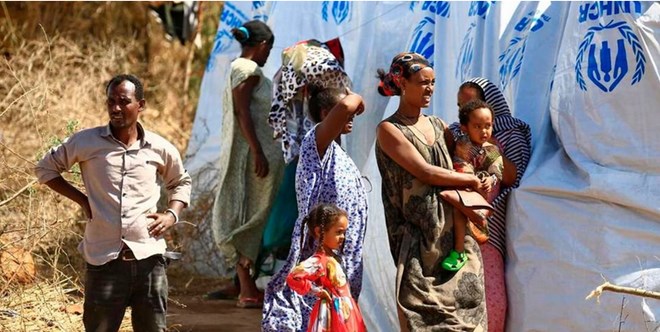
Saturday August 21, 2021

The Ethiopian government on Friday denied claims by US aid chief Samantha Power that it was blocking aid into the war-torn region of Tigray.
Power said in a statement on Thursday that the flow of humanitarian assistance into the region where hundreds of thousands of people are facing famine remains "woefully insufficient" and warned that food was running out.
"This shortage is not because food is unavailable, but because the Ethiopian government is obstructing humanitarian aid and personnel, including land convoys and air access," she said.
Tigray has been gripped by conflict since November, when Ethiopian Prime Minister Abiy Ahmed sent in troops to topple the Tigray People's Liberation Front (TPLF), the region's then ruling party.
In the past, the Ethiopian government and the Tigrayan rebels have each accused the other of hampering the delivery of aid to the country's northernmost region.
"The US calls on the Ethiopian government to immediately allow humanitarian assistance to swiftly move into Tigray in order to prevent a catastrophic stop to food assistance that millions need to survive," said Power, who visited Ethiopia earlier this month.
"This week, for the first time in nine months of conflict, aid workers will run out of food to distribute to the millions of people who are going hungry."
She said humanitarian workers had encountered "unacceptable" delays at checkpoints, repeated intensive searches and harassment.
But the government denied that it was "purposely" blocking humanitarian assistance to Tigray, with Abiy's spokeswoman Billene Seyoum telling reporters: "That is not the case."
She said the government was enabling aid convoys to enter Tigray, but added that security was a "priority that cannot be compromised".
Abiy's office also said on Twitter that as of August 19, 318 trucks carrying aid had arrived in Tigray's capital Mekele, and that a coordination centre had been set up to enable trucks to travel in from the neighbouring Afar region.
Meanwhile, the World Food Programme also warned on Friday that it was facing a major funding shortfall to help feed millions of people in Ethiopia as the country enters its "hunger season", with the situation exacerbated by the conflict that is spreading from Tigray to other regions.
"Due to the extended combined effects of drought, flooding, desert locust invasions, market disruptions and high food prices, and the Covid-19 pandemic, over 13.6 million people are estimated to be food insecure," it said, adding that it needed more than $288 million over the next six months.